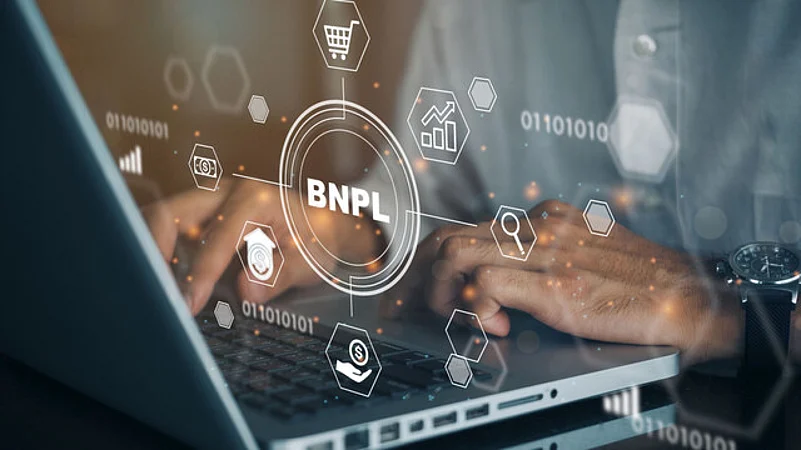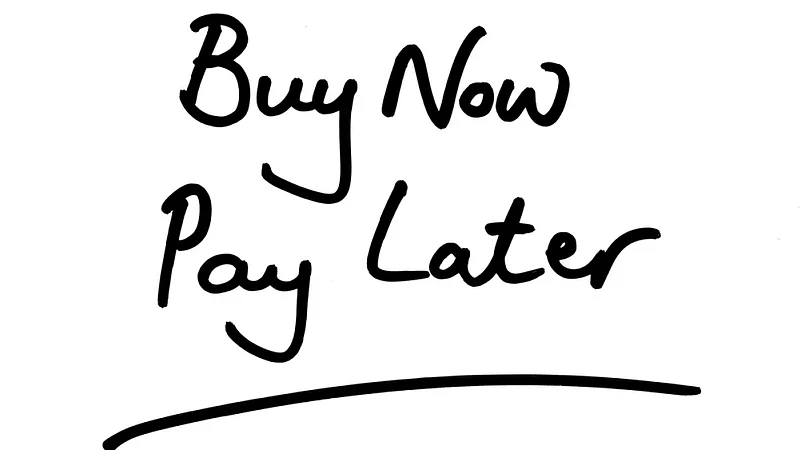BNPL (buy now pay later) borrower, who goes by the Twitter handle @adityaagrw, recently highlighted that he was shocked to find a Rs 30,000 loan against his name on his credit report. He had never applied for any such loan nor was he approached by any bank representative for it.
He later figured out that his BNPL service provider had taken a consumer loan on his behalf and alleged that it had done so without informing him or taking his consent. This loan, of course, impacted his credit score, which plays a major role if you want to borrow a loan in the future.
He highlighted the issue in a tweet recently. Some other users have had similar experiences. (embed tweets by @adityaagrw and @RPB2606).
As it turns out, BNPL entities do take the consent of the borrower. The problem, however, is that few users realise they are giving their consent as it is buried in the list of terms and conditions or frequently asked questions (FAQs) put out by the BNPL providers. Unfortunately, not everyone reads up these fully and some do not understand these completely.
Why Do Consumer Loans Show Up In Credit Scores?
Most BNPL services clearly mention in their FAQ or terms and conditions section that they provide the service in partnership with a bank or non-banking finance company (NBFC). If you read the conditions carefully, you will find that when using the BNPL service on an e-commerce platform, you are essentially signing up for a loan agreement with the issuing bank.
Here’s an example. An excerpt from OLA MONEY Postpaid’s terms and conditions, states, “The facility is a deferred payment facility provided by the merchant to the user, or short-term credit facility provided by the financial institution to the user, as the case may be, to enable you to purchase the products/services from the merchant platform or otherwise, and to pay for the same. Zipcash offers a technology platform, through the application, which enables you to avail the facility from the merchant/ financial institution, as applicable. The merchant enables you to avail of the facility by enabling the user to use the services on the merchant platform. You will be eligible to avail the facility, so long as you have an account with Zipcash, subject to these terms.”
The BNPL borrowing shows up as short-term consumer loans in credit scores. “BNPL is nothing but a loan at the point of sale. Consumers need to be aware that they are borrowing. However, the issue is that the company at the point of sale is not lending as they have no licence to operate lending. They partner with other organisations,” says Mukesh Bubna, founder and CEO, Monexo Fintech.

Lack Of Awareness Can Lead To A Debt Trap
BNPL is emerging as an alternative to credit cards but few understand or are aware of the conditions and costs that accompany this loan product. “The BNPL segment witnessed massive volume growth led by the pandemic-induced pent-up demand. The native digital user experience, ease of execution from mobile apps, options to pay in 3/6/12 instalments etc. have made it a highly preferred mode for digital transactions. BNPL also eliminates the limitations of the two-factor authentication requirement on credit card transactions,” says Amit Das, co-founder and CEO of Think360.ai, a data science and analytics company.
If you use BNPL schemes to pay for your purchases, it’s important to settle the payment within the due date. If you do not do that, you will have pay interest or fee.
“Customers may also have an adverse impact on their credit score if they avail multiple credit products in quick succession, and fail to responsibly manage them. This will eventually also lead to a higher cost of credit for them in the medium to long term,” says Das.
Any default will mean your account will be considered as an NPA (non-performing account), which will lower the score.
“Non-payment of BNPL dues is currently considered in a similar framework as non-payment of credit dues. Any misses on payment accrues penalty charges on the amount (though not charged as an interest as there is no interest component to BNPL) and this is generally a fee charged on top of the overdue amount. In some cases, the penalty affixed might escalate if consumers miss multiple payment deadlines,” says Lalit Mehta, CEO and co-founder, Decimal Technologies, an AI-powered loan provider.
This could easily lead you into a debt trap. Read an in-depth analysis of what these schemes are, how they compare with credit cards and the costs attached with them here.













